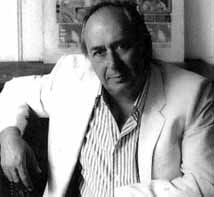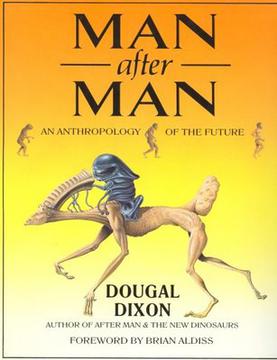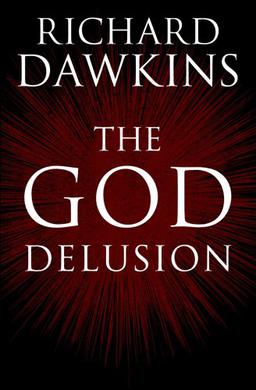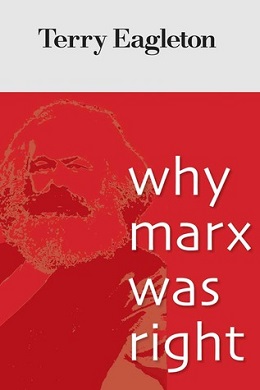
James Graham Ballard was an English novelist, short story writer, satirist, and essayist known for provocative works of fiction which explored the relations between human psychology, technology, sex, and mass media. He first became associated with the New Wave of science fiction for post-apocalyptic novels such as The Drowned World (1962), but later courted controversy for works such as the experimental short story collection The Atrocity Exhibition (1970), which included the 1968 story "Why I Want to Fuck Ronald Reagan", and the novel Crash (1973), a story about a renegade group of car crash fetishists.

Posthumanism or post-humanism is an idea in continental philosophy and critical theory responding to the presence of anthropocentrism in 21st-century thought. It encompasses a wide variety of branches, including:
- Antihumanism: a branch of theory that is critical of traditional humanism and traditional ideas about the human condition, vitality and agency.
- Cultural posthumanism: a branch of cultural theory critical of the foundational assumptions of humanism and its legacy that examines and questions the historical notions of "human" and "human nature", often challenging typical notions of human subjectivity and embodiment and strives to move beyond archaic concepts of "human nature" to develop ones which constantly adapt to contemporary technoscientific knowledge.
- Philosophical posthumanism: a philosophical direction that draws on cultural posthumanism, the philosophical strand examines the ethical implications of expanding the circle of moral concern and extending subjectivities beyond the human species.
- Posthuman condition: the deconstruction of the human condition by critical theorists.
- Posthuman transhumanism: a transhuman ideology and movement which, drawing from posthumanist philosophy, seeks to develop and make available technologies that enable immortality and greatly enhance human intellectual, physical, and psychological capacities in order to achieve a "posthuman future".
- AI takeover: A variant of transhumanism in which humans will not be enhanced, but rather eventually replaced by artificial intelligences. Some philosophers and theorists, including Nick Land, promote the view that humans should embrace and accept their eventual demise as a consequence of a technological singularity. This is related to the view of "cosmism", which supports the building of strong artificial intelligence even if it may entail the end of humanity, as in their view it "would be a cosmic tragedy if humanity freezes evolution at the puny human level".
- Voluntary Human Extinction, which seeks a "posthuman future" that in this case is a future without humans.

Secular humanism is a philosophy, belief system or life stance that embraces human reason, secular ethics, and philosophical naturalism while specifically rejecting religious dogma, supernaturalism, and superstition as the basis of morality and decision making.

Martin Louis Amis is a British novelist, essayist, memoirist, and screenwriter. He is best known for his novels Money (1984) and London Fields (1989). He received the James Tait Black Memorial Prize for his memoir Experience and has been listed for the Booker Prize twice. Amis served as the Professor of Creative Writing at the Centre for New Writing at the University of Manchester until 2011. In 2008, The Times named him one of the fifty greatest British writers since 1945.
Scientism is the opinion that science and the scientific method are the best or only way to render truth about the world and reality.
In environmental philosophy, environmental ethics is an established field of practical philosophy "which reconstructs the essential types of argumentation that can be made for protecting natural entities and the sustainable use of natural resources." The main competing paradigms are anthropocentrism, physiocentrism, and theocentrism. Environmental ethics exerts influence on a large range of disciplines including environmental law, environmental sociology, ecotheology, ecological economics, ecology and environmental geography.
Anthropocentrism is the belief that human beings are the central or most important entity in the universe. The term can be used interchangeably with humanocentrism, and some refer to the concept as human supremacy or human exceptionalism. From an anthropocentric perspective, humankind is seen as separate from nature and superior to it, and other entities are viewed as resources for humans to use.

Terence Francis Eagleton is an English literary theorist, critic, and public intellectual. He is currently Distinguished Professor of English Literature at Lancaster University.

"The Last Question" is a science fiction short story by American writer Isaac Asimov. It first appeared in the November 1956 issue of Science Fiction Quarterly and was anthologized in the collections Nine Tomorrows (1959), The Best of Isaac Asimov (1973), Robot Dreams (1986), The Best Science Fiction of Isaac Asimov (1986), the retrospective Opus 100 (1969), and in Isaac Asimov: The Complete Stories, Vol. 1 (1990). While he also considered it one of his best works, “The Last Question” was Asimov's favorite short story of his own authorship, and is one of a loosely connected series of stories concerning a fictional computer called Multivac. Through successive generations, humanity questions Multivac on the subject of entropy. The story overlaps science fiction, theology, and philosophy.

John Nicholas Gray is an English political philosopher and author with interests in analytic philosophy, the history of ideas, and philosophical pessimism. He retired in 2008 as School Professor of European Thought at the London School of Economics and Political Science. Gray contributes regularly to The Guardian, The Times Literary Supplement and the New Statesman, where he is the lead book reviewer. He is an atheist.

Christian humanism regards humanist principles like universal human dignity, individual freedom, and the importance of happiness as essential and principal or even exclusive components of the teachings of Jesus. Proponents of the term trace the concept to the Renaissance or patristic period, linking their beliefs to the scholarly movement also called 'humanism'.

Loren Eiseley was an American anthropologist, educator, philosopher, and natural science writer, who taught and published books from the 1950s through the 1970s. He received many honorary degrees and was a fellow of multiple professional societies. At his death, he was Benjamin Franklin Professor of Anthropology and History of Science at the University of Pennsylvania.

In social theory and philosophy, antihumanism or anti-humanism is a theory that is critical of traditional humanism, traditional ideas about humanity and the human condition. Central to antihumanism is the view that philosophical anthropology and its concepts of "human nature", "man" or "humanity" should be rejected as historically relative, ideological or metaphysical.

Man After Man: An Anthropology of the Future is a 1990 speculative evolution and science fiction book written by Scottish geologist and palaeontologist Dougal Dixon and illustrated by Philip Hood. The book also features a foreword by Brian Aldiss. Man After Man explores a hypothetical future path of human evolution set from 200 years in the future to 5 million years in the future, with several future human species evolving through genetic engineering and natural means through the course of the book.
Straw dogs or Grass dogs, figures of dogs made out of straw, were used as ceremonial objects in ancient China, as a substitute for the sacrifice of living dogs. Chu gou has been used figuratively to refer to anything discarded after use.

Humanism is a philosophical stance that emphasizes the individual and social potential, and agency of human beings, whom it considers the starting point for serious moral and philosophical inquiry.

The God Delusion is a 2006 book by British evolutionary biologist, ethologist Richard Dawkins, a professorial fellow at New College, Oxford and, at the time of publication, the Charles Simonyi Chair for the Public Understanding of Science at the University of Oxford.

Why Marx Was Right is a 2011 non-fiction book by the British academic Terry Eagleton about the 19th-century philosopher Karl Marx and the schools of thought, collectively known as Marxism, that arose from his work. Written for laypeople, Why Marx Was Right outlines ten objections to Marxism that they may hold and aims to refute each one in turn. These include arguments that Marxism is irrelevant owing to changing social classes in the modern world, that it is deterministic and utopian, and that Marxists oppose all reforms and believe in an authoritarian state.

Marxist humanism is an international body of thought and political action rooted in a humanist interpretation of the works of Karl Marx. It is an investigation into "what human nature consists of and what sort of society would be most conducive to human thriving" from a critical perspective rooted in Marxist philosophy. Marxist humanists argue that Marx himself was concerned with investigating similar questions.

Biology appears in fiction, especially but not only in science fiction, both in the shape of real aspects of the science, used as themes or plot devices, and in the form of fictional elements, whether fictional extensions or applications of biological theory, or through the invention of fictional organisms. Major aspects of biology found in fiction include evolution, disease, genetics, physiology, parasitism and symbiosis (mutualism), ethology, and ecology.












